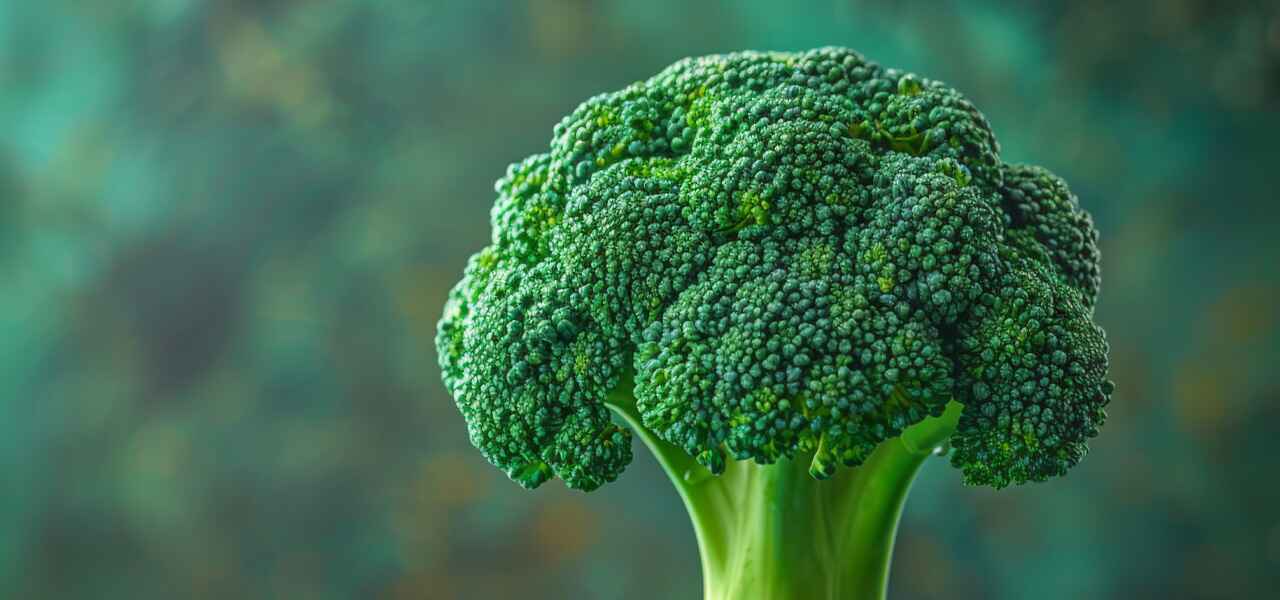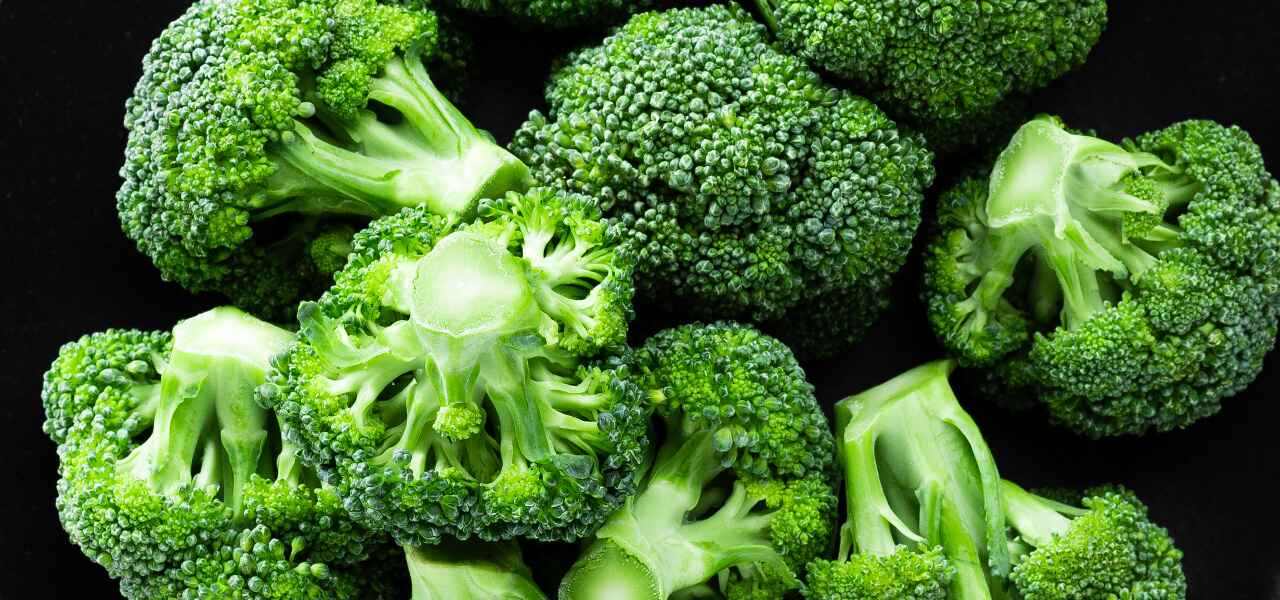Introduction
Broccoli is often considered a staple in healthy diets, and for good reason. This cruciferous vegetable is not only inzcredibly nutritious, but it also offers a range of health benefits that make it a standout in the world of super foods. Whether you enjoy it steamed, roasted, or blended into a smoothie, broccoli provides a powerhouse of nutrients essential for maintaining optimal health.
What is Broccoli?
Broccoli is a green vegetable that belongs to the Brassicaceae family, which also includes cauliflower, kale, and Brussels sprouts. It’s known for its edible green florets, which resemble miniature trees, and its thick, crunchy stalk. Originating in the Mediterranean, broccoli has been cultivated for centuries and has become a key component of global cuisine due to its versatility and health benefits.
Broccoli can be consumed raw or cooked, and its slightly bitter flavor pairs well with a variety of dishes. But what truly sets broccoli apart is its rich nutrient profile.
Nutritional Profile of Broccoli
Broccoli is low in calories but packed with essential vitamins, minerals, and antioxidants, making it a nutrient-dense food.
A one-cup (91 grams) serving of raw broccoli provides:
- Calories: 31
- Protein: 2.5 grams
- Carbohydrates: 6 grams
- Fiber: 2.4 grams
- Vitamin C: 90% of the Daily Value (DV)
- Vitamin K: 85% of the DV
- Folate (Vitamin B9): 14% of the DV
- Potassium: 6% of the DV
- Vitamin A: 11% of the DV
Broccoli also contains a notable amount of iron, calcium, and magnesium, as well as small amounts of omega-3 fatty acids. It’s also rich in phytochemicals like sulforaphane, which contributes to its various health benefits.
Health Benefits of Broccoli
- Rich in Antioxidants and Fights Inflammation
One of broccoli’s standout features is its high concentration of antioxidants. These compounds help to neutralize free radicals in the body, which can cause oxidative stress and contribute to chronic diseases like cancer and heart disease.
The most powerful compound found in broccoli is sulforaphane, a type of isothiocyanate that has potent antioxidant and anti-inflammatory properties. Research suggests that sulforaphane may reduce inflammation by lowering levels of oxidative stress and inflammation-related enzymes in the body. Other antioxidants in broccoli include vitamin C, beta-carotene, zeaxanthin, and lutein, all of which contribute to reducing inflammation and supporting overall health.
- Supports Heart Health
A diet rich in vegetables, especially those high in fiber like broccoli, has been linked to a lower risk of heart disease. Broccoli’s fiber content helps to reduce cholesterol levels by binding with cholesterol in the digestive tract, which prevents it from being absorbed into the bloodstream. As a result, this can lead to lower LDL (bad cholesterol) levels and improved heart health.
Additionally, the potassium in broccoli helps to maintain healthy blood pressure levels by counteracting the effects of sodium. Broccoli also contains compounds that support the elasticity of blood vessels, further promoting cardiovascular health.
- Boosts Immune System
When it comes to immune-boosting properties, broccoli shines due to its high content of vitamin C and other antioxidants. Vitamin C is essential for the production of white blood cells, which are the body’s first line of defense against infections.
Consuming broccoli regularly can help bolster your immune system and protect against colds, flu, and other infections. Moreover, its antioxidant content reduces oxidative stress, further supporting immune function.
- Promotes Healthy Digestion
Broccoli is an excellent source of dietary fiber, which is key to maintaining a healthy digestive system. Fiber helps to promote regular bowel movements, preventing constipation, and reducing the risk of gastrointestinal disorders like irritable bowel syndrome (IBS) and diverticulitis.
In addition to fiber, broccoli contains bioactive compounds that can support gut health. Studies have shown that these compounds may help to maintain the integrity of the gut lining and prevent the overgrowth of harmful bacteria in the digestive tract.
- Aids in Weight Loss
For those looking to shed a few pounds, broccoli can be a helpful addition to a weight-loss diet. It’s low in calories and high in fiber, making it a filling food that can keep you satisfied without the excess calories. The fiber content in broccoli slows digestion, helping you feel fuller for longer and reducing the temptation to snack on unhealthy foods.
Additionally, the protein content in broccoli, while modest, still contributes to a balanced diet, which is crucial for maintaining lean muscle mass during weight loss.
- May Help Prevent Cancer
One of the most studied benefits of broccoli is its potential role in cancer prevention. The vegetable contains compounds like sulforaphane and indole-3-carbinol, which have been shown to have anti-cancer properties. Sulforaphane, in particular, may help reduce the risk of several types of cancer, including breast, prostate, lung, and colon cancer.
These compounds work by neutralizing carcinogens (cancer-causing substances), reducing oxidative stress, and inhibiting the growth of cancerous cells. While more research is needed to fully understand broccoli’s role in cancer prevention, its high content of antioxidants and phytochemicals makes it a valuable part of any cancer-fighting diet.
- Supports Bone Health
Broccoli is a good source of calcium and vitamin K, both of which are crucial for maintaining strong bones and preventing bone-related disorders such as osteoporosis. Vitamin K is essential for bone metabolism, and its deficiency can lead to bone fractures.
The calcium in broccoli, though not as high as in dairy products, contributes to overall bone health, especially when consumed alongside other calcium-rich foods.
- Improves Skin Health
Your skin can benefit from broccoli’s high levels of antioxidants, particularly vitamin C. Vitamin C is involved in the production of collagen, a protein that helps keep skin firm and youthful. Broccoli also contains other nutrients like vitamin A and zinc, which play important roles in skin repair and maintenance.
Consuming broccoli regularly may help protect the skin from sun damage, improve skin elasticity, and reduce the appearance of wrinkles.
- Detoxifies the Body
Broccoli contains compounds that support the body’s natural detoxification processes. These include glucosinolates, sulforaphane, and indole-3-carbinol, which help to stimulate detoxifying enzymes in the liver. These enzymes assist in breaking down and eliminating harmful toxins, including those linked to the development of chronic diseases.
Regular consumption of broccoli can help cleanse the body of pollutants, heavy metals, and harmful chemicals.
- Supports Eye Health
Broccoli is also beneficial for maintaining good vision due to its high content of beta-carotene, lutein, and zeaxanthin—antioxidants that are known to protect the eyes from oxidative stress and damage. These compounds help to filter out harmful blue light and reduce the risk of age-related eye conditions like cataracts and macular degeneration.
In addition, the vitamin A found in broccoli plays a crucial role in maintaining healthy vision and preventing night blindness.
Conclusion: Broccoli – A Nutritional Powerhouse
Broccoli is more than just a vegetable—it’s a nutritional powerhouse packed with essential vitamins, minerals, and antioxidants. From supporting heart health to reducing cancer risk, improving digestion, and boosting the immune system, the benefits of broccoli are vast. Incorporating broccoli into your diet regularly can enhance your overall well-being and help protect against chronic diseases. Whether you enjoy it raw, roasted, or blended, broccoli deserves a prominent place on your plate.









